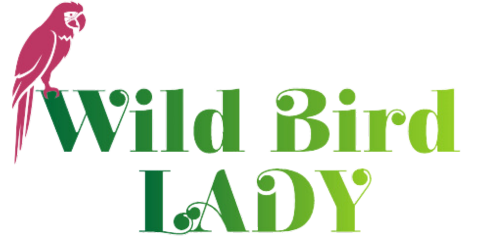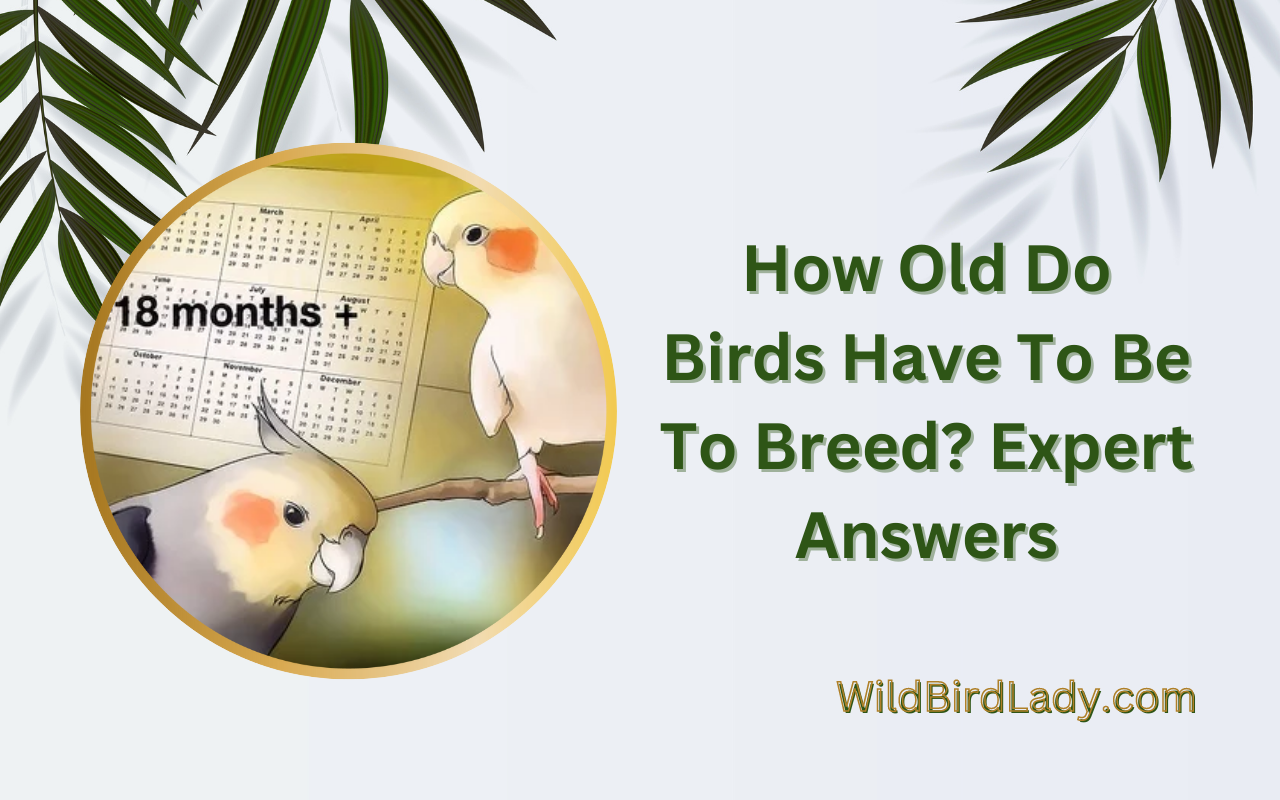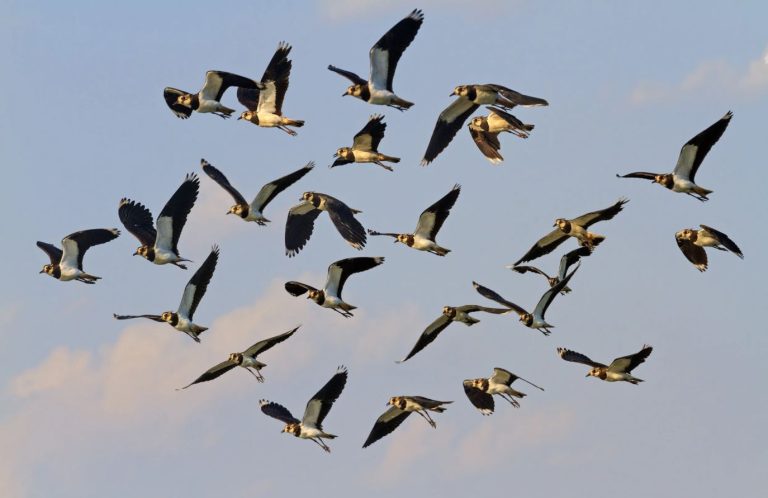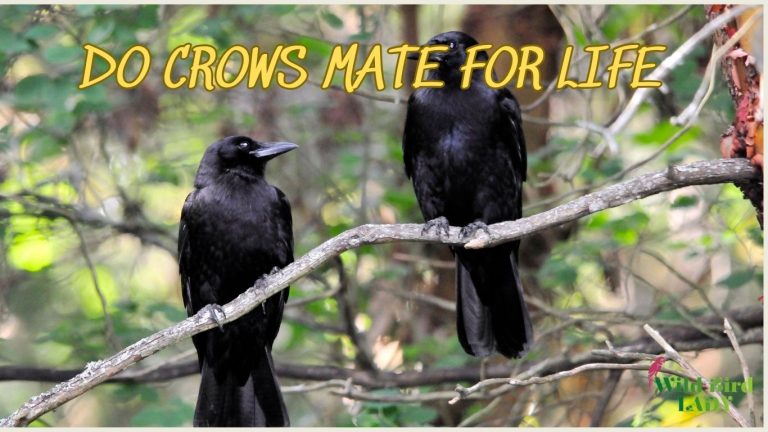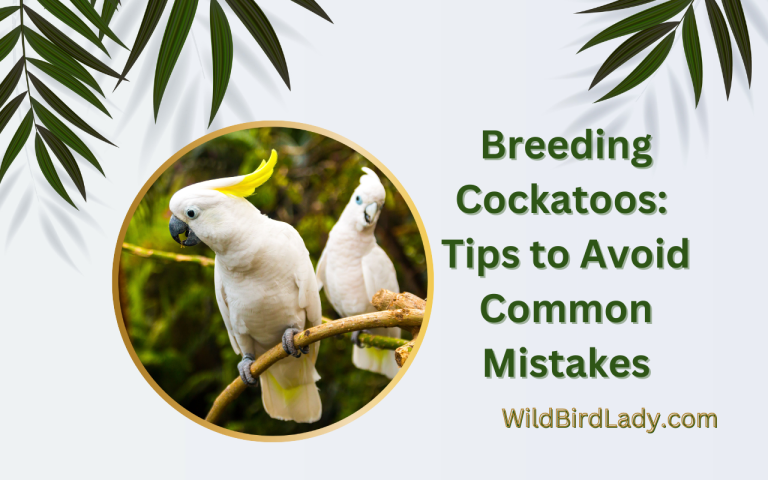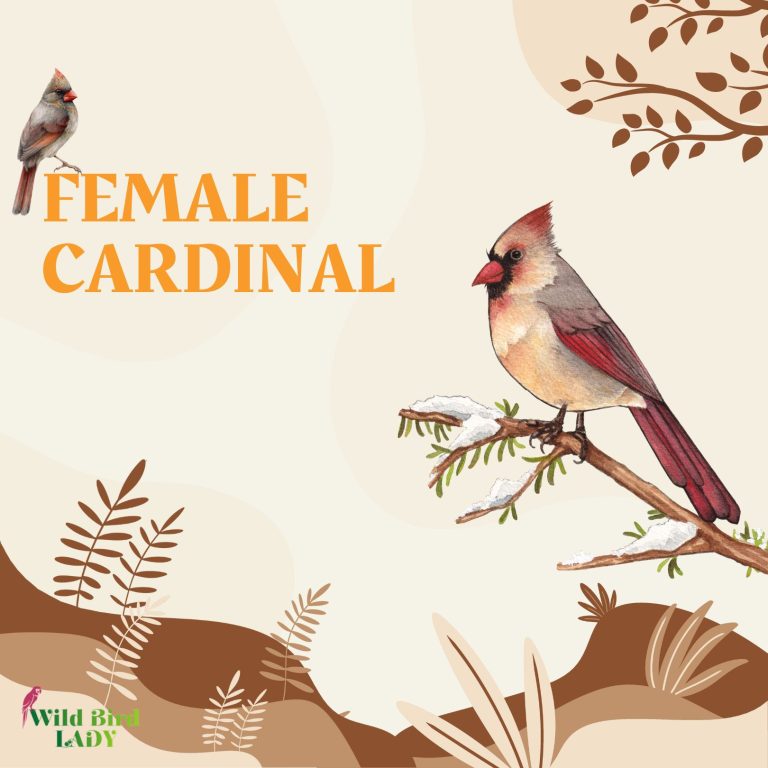How Old Do Birds Have To Be To Breed? Expert Answers
🐤 Birds can start breeding once they reach sexual maturity, which varies depending on the species. Generally, most birds become sexually mature and ready to breed between the ages of 1 and 3 years old.
However, it’s important to note that some larger bird species may not reach sexual maturity until they are 5 to 7 years old. The age for breeding can also be influenced by factors such as breeding seasons, environmental conditions, and availability of mates.
Breeding in birds is an important part of their life cycle. Many bird enthusiasts find the process fascinating and enjoy observing breeding behaviors in their feathered friends. Additionally, breeding can help maintain bird populations and contribute to conservation efforts. However, it’s crucial to ensure that breeding is done responsibly and ethically to avoid any negative effects on the birds’ health and welfare. Proper care, diet, and environment are essential for successful breeding and healthy offspring.
Credit: www.audubon.org
Factors Influencing The Age Birds Begin Breeding
Birds can begin breeding at different ages, depending on a variety of factors. Some of these factors include genetic, environmental, and social influences. Let’s explore each of these factors in detail below.
Genetic Factors
Certain bird species may have genetic factors that impact when they reach breeding age. For example, some birds may inherit genes that cause them to mature more slowly; thus, they may not begin breeding until they are 2-3 years old.
Other birds may inherit genes that cause them to mature more quickly and begin breeding as early as their first year.
Environmental Factors
Environmental factors can also play a role in when birds begin breeding. Birds living in stable climates and abundant food resources may be more likely to reach breeding age earlier than those living in areas with more variable environmental conditions.
Additionally, birds living in captivity may begin breeding earlier than wild birds due to access to a consistent food supply and fewer predators.
Social Factors
Finally, social factors can also influence when birds begin breeding. Some birds may delay breeding until they can secure a suitable mate or nesting location. Alternatively, birds may begin breeding earlier if they are part of a larger flock or community, as they may have more resources available to them.
While birds can begin breeding at different ages, various factors can influence when they reach sexual maturity. We can gain valuable insights into bird behavior and reproductive patterns by understanding these factors.
Understanding The Breeding Cycle Of Birds
Breeding is an essential aspect of the life cycle of birds. Nesting is a natural process that takes place in birds once they reach their suitable breeding age. But how old do birds have to be to breed, and what is the breeding cycle of birds?
This blog post will provide expert answers to these questions.
Stages Of The Breeding Cycle
The breeding cycle of birds comprises four main stages: pre-laying, laying, incubation, and hatching. These stages are essential to understand when breeding birds.
- Pre-laying: This stage takes place a few days before the bird lays eggs. During this period, the bird explores the nesting site, selects a mate, and prepares the nesting area.
- Laying: This stage is when the bird lays its egg. The bird will typically lay one egg each day until the clutch (total number of eggs laid) is complete.
- Incubation: During this stage, the bird sits on the eggs to keep them warm. This warmth is required for the eggs to develop and hatch. The incubation period may differ depending on the species, but it usually takes around 14-28 days.
- Hatching: This final stage is the most exciting as it marks the start of new life. During this stage, the eggs will hatch, and the younglings will emerge from their shells. Young birds may need to remain in the nest for several weeks before they can leave and fend for themselves.
Importance Of Understanding The Breeding Cycle For Bird-Keepers
Understanding the breeding cycle is crucial for bird-keepers as it allows them to provide the necessary care for their birds. Adequate care will ensure that birds breed successfully and young birds grow healthily.
- Identification of mating pairs: Breeding birds must be identified, and mating pairs should be monitored to check the stage of their breeding cycle. This monitoring will assist in providing the necessary care for successful breeding.
- Provision of adequate diet: The birds’ dietary requirements may change during the breeding cycle. This information on the birds’ preferred foods ensures that their nutritional needs are met during each stage of the breeding cycle.
- Nesting materials: Providing appropriate nesting materials, such as feathers, twigs, and leaves, will help create a suitable nesting area for the birds and their younglings.
- Monitoring of young birds: Bird-keepers should monitor young birds closely, providing them with warmth and adequate food, and checking for any signs of illness to keep them healthy.
Understanding the breeding cycle of birds is critical for bird keepers to care for their birds effectively and successfully breed them. Knowing the stages of the breeding cycle, such as pre-laying, laying, incubation, and hatching, will assist in providing birds with the necessary care they require to breed successfully.
Age Of Sexual Maturity For Common Bird Species
Have you ever found a nest of bird eggs and wondered how old the parent birds were when they laid them? Or perhaps you’re planning to breed birds and want to know the minimum age they can breed.
In this blog post, we will explore the age of sexual maturity for common bird species. Keep reading to find out more!
Chart & Specifics Around The Age Of Sexual Maturity
The age of sexual maturity varies between bird species, but it typically falls between 6 months and 2 years. Here’s a chart of the average age of sexual maturity for some commonly kept bird species:
- Budgerigars: 6-8 months
- Canaries: 9 months
- Cockatiels: 12 months
- Lovebirds: 10-12 months
- African grey parrots: 2 years
It’s important to note that the above ages are averages and may vary depending on factors such as gender, diet, and living conditions.
Factors That Might Trigger Early Or Late Sexual Maturity
Some factors that may trigger early sexual maturity include:
- High protein diets
- Exposure to longer daylight hours
- Being housed with sexually mature birds
On the other hand, factors that may delay sexual maturity include:
- Poor nutrition
- Inadequate living conditions
- Inbreeding
Exceptions To The Average Age Of Sexual Maturity
While the ages listed above are average, there are some exceptions. For example, some budgerigars may reach sexual maturity as early as 4 months of age, while others may not breed until they’re a year old. Female canaries may begin breeding as early as 6 months of age, while males may take up to a year to reach sexual maturity.
The age of sexual maturity varies across different bird species, and may be influenced by various factors including genetics, diet and living conditions. By understanding the typical age at which birds breed, bird owners and breeders can make informed decisions about breeding their feathered friends.
Positive And Negative Implications Of Early Breeding In Birds
Breeding is a natural process that birds go through once they reach maturity. However, have you ever asked yourself how old birds have to be to breed? Well, different bird species reach maturity at different ages, and this determines when they can start breeding.
In this blog post, we focus on early breeding in birds, and the positive and negative implications that come with it. Below are the advantages and disadvantages of early breeding in birds:
Advantages
- Early breeding allows birds to produce more offspring over their lifetime since they have more time to breed.
- Early breeding also increases the chances of having healthier offspring since younger birds are usually healthier.
- If the breeding season is short, early breeders have the advantage of acquiring mates before competition is high.
Disadvantages
- Young birds that mate early in their life have a greater risk of not surviving because breeding takes up a lot of energy, and it can weaken the birds’ immune system.
- Early breeding can also lead to inbreeding, which can cause genetic abnormalities in the offspring.
- Early breeders might also face the challenge of finding and defending territories, resources and partners.
Early breeding in birds can have both positive and negative implications. While it can lead to more offspring production and healthier babies, it can also cause the birds to face challenges, such as weakened immune systems, inbreeding, and finding suitable territories and partners.
Birds that delay their breeding also have their own unique advantages and challenges, and this is something that we’ll cover in a future blog post.
Frequently Asked Questions
At What Age Do Birds Start Laying Eggs?
Most bird species start laying eggs when they reach sexual maturity, which varies depending on the species. Generally, small songbirds start breeding at one year of age, while larger birds, such as eagles, may not breed until they are five or six years old.
Can Birds Mate Before They Are Sexually Mature?
No, birds must reach sexual maturity before they mate and breed successfully. Attempting to breed before they are ready can result in infertile eggs or hatchlings with health complications.
What Factors Influence The Breeding Age Of Birds?
Environmental factors, such as climate and food availability, can affect the breeding age of birds. Social factors, such as competition for resources and finding a mate, can also play a role in when birds start breeding.
How Many Eggs Do Birds Typically Lay In A Clutch?
The number of eggs a bird lays in a clutch varies depending on the species. Small songbirds may only lay one or two eggs, while larger birds, such as eagles or ostriches, can lay up to six or seven eggs in a single clutch.
How Long Does It Take For A Bird Egg To Hatch?
The incubation period for a bird egg varies depending on the species. Smaller songbirds typically have an incubation period of around two weeks, while larger birds, such as eagles or albatrosses, can take up to several months to incubate their eggs.
Conclusion
After exploring the question of how old birds have to be to breed, we can conclude that it varies greatly depending on the species. Some birds, such as canaries, can begin breeding as early as five or six months old.
Other species, such as eagles, may not reach sexual maturity until they are several years old. Factors such as diet, environmental conditions, and genetics can all play a role in determining when a bird is ready to breed. It is important for bird owners to educate themselves on the specific needs of their species and ensure they provide appropriate care and housing to encourage successful breeding.
While breeding can be a rewarding experience, it is also important to remember that it comes with added responsibility and should only be undertaken by those who are prepared for the commitment.
